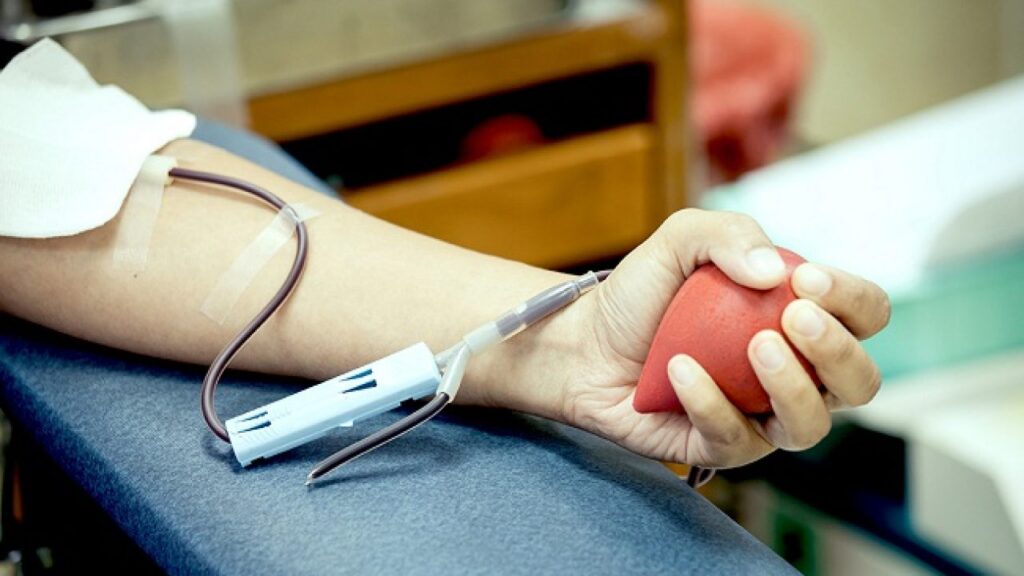Introduction:
Are you a diabetic eager to make a meaningful contribution through blood donation? The question often arises: Can diabetics donate blood, and what does the process entail? Let’s delve into this topic step by step
Understanding Blood Transfusion:
A blood transfusion is a common medical procedure that involves adding donated blood to individuals suffering from injuries or illnesses. This procedure, often administered via a vein, can be life-saving for those in need.
Requirements for Blood Donation:
To donate blood, specific eligibility criteria must be met. According to the National Heart, Lung, and Blood Institute, these requirements include:
Good health
Age requirements (17 years for males, 19 years for females)
Height and weight criteria
Absence of organ, bleeding, lung, or heart diseases
A 56-day gap between donations
Freedom from cold or flu-like symptoms
Presentation of valid identification
(Note: Additional criteria may apply depending on your location.)
Tip: Please fill out this form to determine whether or not you or a friend are eligible for a CGM and, Also learn about Blood Sugar Control
Why Blood Donation is Vital:
Blood donations are indispensable for various medical situations. The National Institutes of Health highlights a few key reasons:
Post-Surgery: Individuals who have recently undergone surgery may require donated blood due to blood loss.
Anemia: Those with anemia lack oxygen-rich blood, leading to fatigue or weakness. Severe cases necessitate red blood cell transfusions.
Cancer: Blood transfusions aid in combating certain cancer types and mitigating the side effects of cancer treatments.
Sickle Cell Disease: Sickle cell disease, common among individuals of African ancestry, requires blood and bone marrow transplants for a cure.
Burn Victims: Severe burn victims often experience significant blood loss and reduced red cell production, making blood transfusions crucial for their survival and recovery.
Can Diabetics Donate Blood?:
Diabetics may wonder if they can participate in blood donation, given their challenges in controlling blood sugar levels. The answer is yes, diabetics can donate blood, but with certain considerations:
Individuals with Type 1 or Type 2 diabetes are eligible, provided their condition is well-managed and they are in good health.
Diabetics should bring their blood monitoring equipment to track blood sugar levels during the donation process.
Communication about diabetes and medications is crucial during the screening process, which may include blood sugar level checks and blood pressure measurements.
Determining Your Blood Type:
Blood type awareness is essential. There are eight primary blood types, and the most common ones are as follows: A+, A-, B+, B-, O+, O-, AB+, and AB-. You can determine your blood type through a blood typing kit or by asking your biological parents if they know their blood types. Universal blood donors, with O- blood, are especially sought after, as this blood type can be used in any transfusion.
Read Guide about Wegovy Dosage Guide: The Best Way For Weight Loss
The Blood Donation Process:
The blood donation process is straightforward, but preparation is key:
- Locate a blood donation center or drive and fill out pre-screening forms.
- Consume iron-rich foods in the weeks leading up to your donation.
- Stay hydrated on the day of donation, wear suitable clothing, and bring a list of medications and identification.
- Upon arrival, undergo pre-screening, which may involve health and travel questions, temperature checks, and blood pressure measurements.
- The blood extraction process involves a sterile needle, which may cause anxiety for some individuals. Overcoming needle fear is possible through various methods.
Must Read About Early Puberty Onset in Children with Type 1 Diabetes
After Donation:
After successfully donating blood, your contribution will be tested for diseases, and if accepted, it will be stored for future use. Bruising at the needle site is common but temporary. A healthy diet is recommended post-donation. Remember, you’ve made a valuable contribution to those in need.
In conclusion, whether you’re a diabetic or not, blood donation is a noble act that can save lives. The process is largely the same for everyone, with specific guidelines for eligibility and preparation. By donating blood, you have the potential to make a significant impact and help those facing medical challenges.


